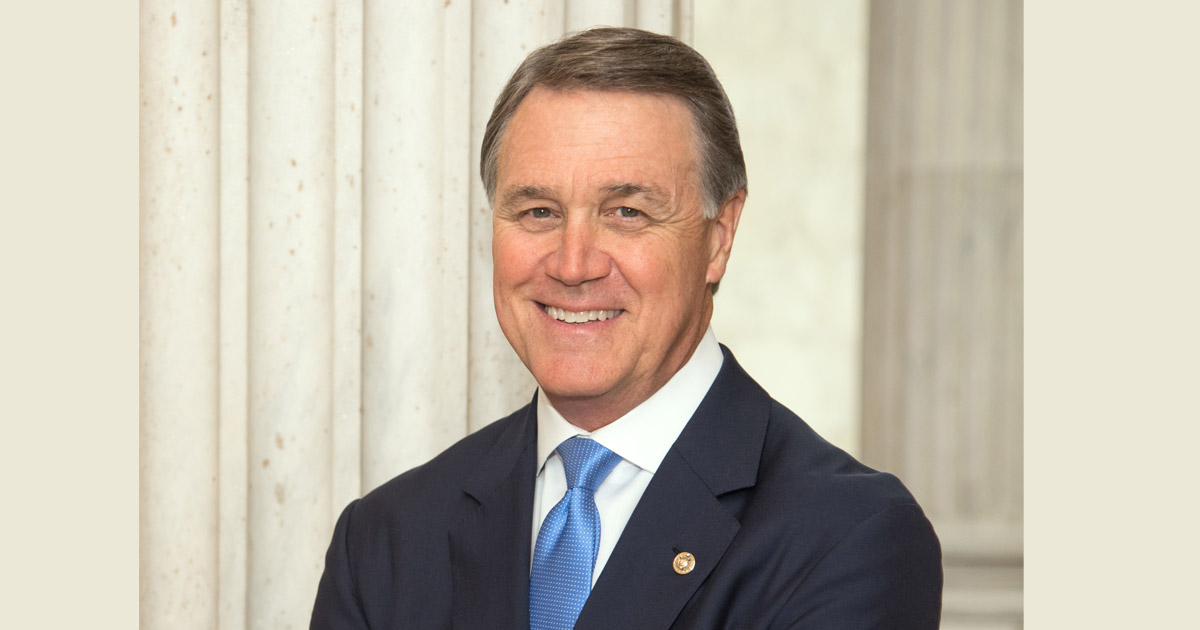Washington, D.C. — Former President Donald Trump has nominated former Senator David Perdue (R-GA) to serve as the United States Ambassador to China, a strategic move that comes amid rising tensions between Washington and Beijing. The appointment of Perdue, who is a longtime Trump ally and former business executive with significant international experience, signals the Trump campaign’s intent to strengthen its diplomatic strategy with China as the nation navigates a delicate geopolitical landscape.
Trump announced the appointment during a press conference, describing Perdue as someone with a wealth of experience in business, international relations, and a firm understanding of the economic issues that lie at the core of the U.S.-China relationship. “David has the experience, toughness, and knowledge we need to handle our most complex relationship on the global stage,” Trump stated.
David Perdue’s Background and Qualifications
David Perdue served as a U.S. Senator from Georgia from 2015 to 2021 and has maintained a close relationship with Trump since his time in office. Before entering politics, Perdue worked as a senior executive in several major corporations, including Reebok and Dollar General, where he gained experience in global trade and economics. His extensive background in the private sector is seen as a significant asset in navigating the complexities of the U.S.-China relationship, which is deeply rooted in economic and trade considerations.
Perdue has been a vocal supporter of Trump’s foreign policy, particularly regarding taking a tougher stance on China. He has repeatedly criticized the Chinese government for unfair trade practices, intellectual property theft, and its role in the global spread of COVID-19. As ambassador, Perdue is expected to continue advocating for policies that put pressure on Beijing to address these issues while pushing for more favorable terms in trade negotiations.
Navigating a Complex Relationship
The U.S.-China relationship has faced significant challenges in recent years, with tensions escalating over issues ranging from trade imbalances and technological competition to human rights concerns and China’s military activity in the South China Sea. Under the Biden administration, relations between the two superpowers remained tense, with both sides imposing sanctions and taking a hard stance on various issues.
Trump’s decision to tap Perdue for this key diplomatic post is seen as a move to recalibrate the U.S. approach towards China, emphasizing economic strength and a return to “America First” policies. Perdue’s appointment will likely focus on addressing ongoing trade disputes, as well as confronting China’s influence in global technology markets and its controversial practices concerning intellectual property.
Reactions to the Appointment
Perdue’s nomination has received mixed reactions from lawmakers and foreign policy experts. Republican allies have praised the appointment, citing Perdue’s business acumen and experience dealing with international economic issues as valuable assets for the role. Senator Lindsey Graham (R-SC) voiced his support, saying, “David Perdue is the right person to take on China and ensure that America’s interests are protected. He knows how to negotiate, and he understands the stakes.”
On the other hand, Democrats and critics of the Trump administration have raised concerns about Perdue’s lack of direct diplomatic experience. They argue that the U.S.-China relationship requires a seasoned diplomat familiar with the nuances of Chinese politics and culture. Some have also pointed to Perdue’s close ties to Trump, suggesting that his appointment could lead to a more confrontational stance that might exacerbate tensions rather than lead to constructive dialogue.
China’s Response
The Chinese government has not yet issued an official statement regarding Perdue’s nomination. However, analysts expect Beijing to approach the appointment cautiously, given Perdue’s reputation as a staunch critic of China. The Chinese leadership has previously expressed concern over Trump’s policies, which they view as aggressive and aimed at containing China’s rise.
Perdue’s confirmation process will be closely watched, both domestically and internationally, as it will offer insights into the future trajectory of U.S.-China relations under a potential second Trump administration. The ambassador role is crucial, given the growing rivalry between the two nations and the impact that this relationship has on global economic stability and security.
The Road Ahead
As the U.S. continues to navigate its complex relationship with China, David Perdue’s appointment signals a renewed focus on economic and trade issues, alongside a commitment to holding China accountable for what Trump has often described as “unfair practices.” If confirmed, Perdue will be tasked with balancing the need for cooperation on global challenges—such as climate change and public health—with a firm stance against policies that are seen as threatening U.S. interests.
With the 2024 presidential election approaching, Trump’s decision to nominate a trusted ally for the ambassadorship further demonstrates his administration’s intent to prioritize toughness on China as a key aspect of its foreign policy. Whether this strategy will yield productive outcomes remains to be seen, but the nomination has already added another layer of complexity to an already challenging diplomatic landscape.
Sources:
- Fox News. “Trump Taps Former Sen. David Perdue as Ambassador to China.” Link
- Statements from Former President Donald Trump on David Perdue’s Appointment, December 2024.
- Reactions from Republican and Democratic lawmakers regarding Perdue’s nomination.

